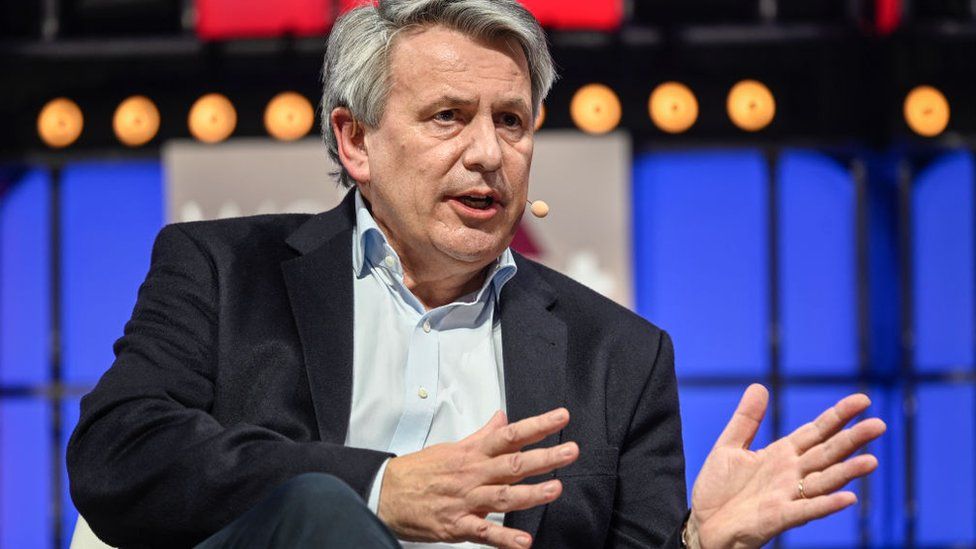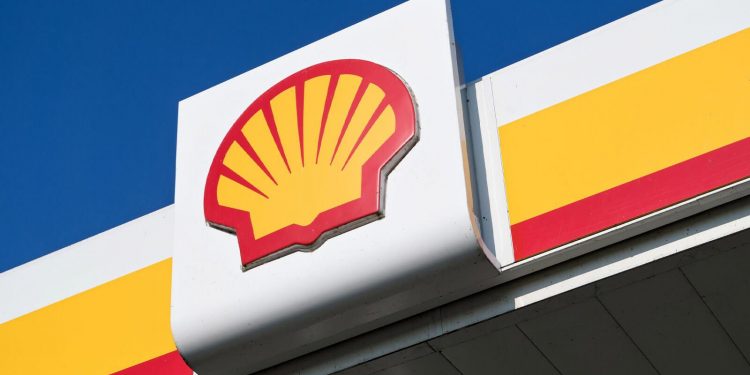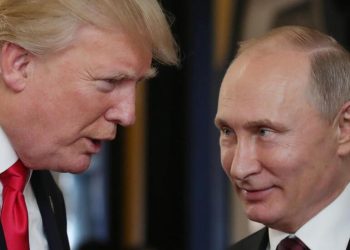Shell has pledged to stop buying oil from Russia as it apologised for its purchase of cheap Russian crude at the weekend.
The energy giant also said it would close all its service stations in the country and stop all current work there.
Shell came under huge criticism at the weekend after it purchased a cargo of Russian crude at a discounted price.
Its boss said on Tuesday, however, that it was wrong to buy Russian oil.
“We are acutely aware that our decision last week to purchase a cargo of Russian crude oil…was not the right one and we are sorry,” Mr van Beurden said.
The company said it will immediately stop purchasing Russian crude oil and will shut about 500 service stations there, as well as halting its aviation fuel and lubricant operations in the country.
The rest of the company’s exit from Russian oil and gas is expected to take some time.
The Ukrainian foreign minister had hit out at the firm on social media after it emerged Shell had bought crude.
I am told that Shell discretely bought some Russian oil yesterday. One question to @Shell: doesn’t Russian oil smell Ukrainian blood for you? I call on all conscious people around the globe to demand multinational companies to cut all business ties with Russia.
— Dmytro Kuleba (@DmytroKuleba) March 5, 2022
“Doesn’t Russian oil smell Ukrainian blood for you,” asked Dmytro Kuleba.
‘Complex challenge’
Exiting the Russia market is “a complex challenge,” admitted Mr van Beurden.
“Changing this part of the energy system will require concerted action by governments, energy suppliers and customers, and a transition to other energy supplies will take much longer.”
When Shell was forced to defend its purchase of Russian crude over the weekend, it insisted that it had “no alternative” in order to maintain timely supplies of fuel to Europe.
Russian oil currently makes up about 8% of Shell’s working supplies. One of the firm’s refineries, which produces diesel and petrol and other products, is also among the biggest in Europe.
Cargoes from other sources would not have arrived in time to avoid disruptions to market supply, it said.
It still remains unclear, however, how exactly Shell will replace the volume of energy produced by Russia.
“These societal challenges highlight the dilemma between putting pressure on the Russian government over its atrocities in Ukraine and ensuring stable, secure energy supplies across Europe,” said Mr van Beurden.
“But ultimately, it is for governments to decide on the incredibly difficult trade-offs that must be made during the war in Ukraine.”
He added that the firm would continue to work with governments on how to manage any potential impact on energy supplies.

And any profits it generates from remaining Russian oil will go to dedicated funds aimed at helping people affected by the war in Ukraine.
The move follows previous announcements by the company, which set out its plans to end all of its joint ventures with the Russian energy company Gazprom following the invasion.
That will involve the company selling its 27.5% stake in a major liquefied natural gas plant and a 50% stake in two oilfield projects in Siberia.
It will also end its involvement in the Nord Stream 2 pipeline between Russia and Germany. The 1,200km pipeline under the Baltic Sea had already been put on hold by German ministers.
Shell said that it expected the move would cost about $3bn (£2.2bn) and followed on from BP announcing it would offload its 19.75% stake in Russian state-owned oil firm Rosneft, which it has held since 2013. BP’s stake in Rosneft is valued at around $25bn.
Deputy Prime Minister Alexander Novak said a “rejection of Russian oil would lead to catastrophic consequences for the global market”, causing prices to more than double to $300 a barrel.
The US has been exploring a potential ban with allies as a way of punishing Russia for its invasion of Ukraine, but Germany and the Netherlands rejected the plan on Monday.
The EU gets about 40% of its gas and 30% of its oil from Russia, and has no easy substitutes if supplies are disrupted, as Shell has pointed out.
While the UK would not be directly impacted by supply disruption, as it imports less than 5% of its gas from Russia, it would be affected by prices rising in the global markets as demand in Europe increases.
source: BBC



















































